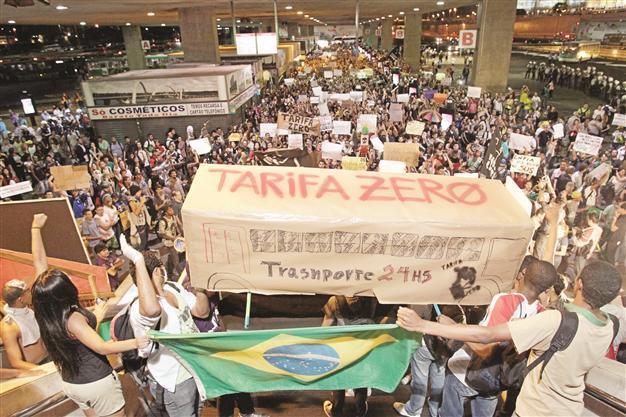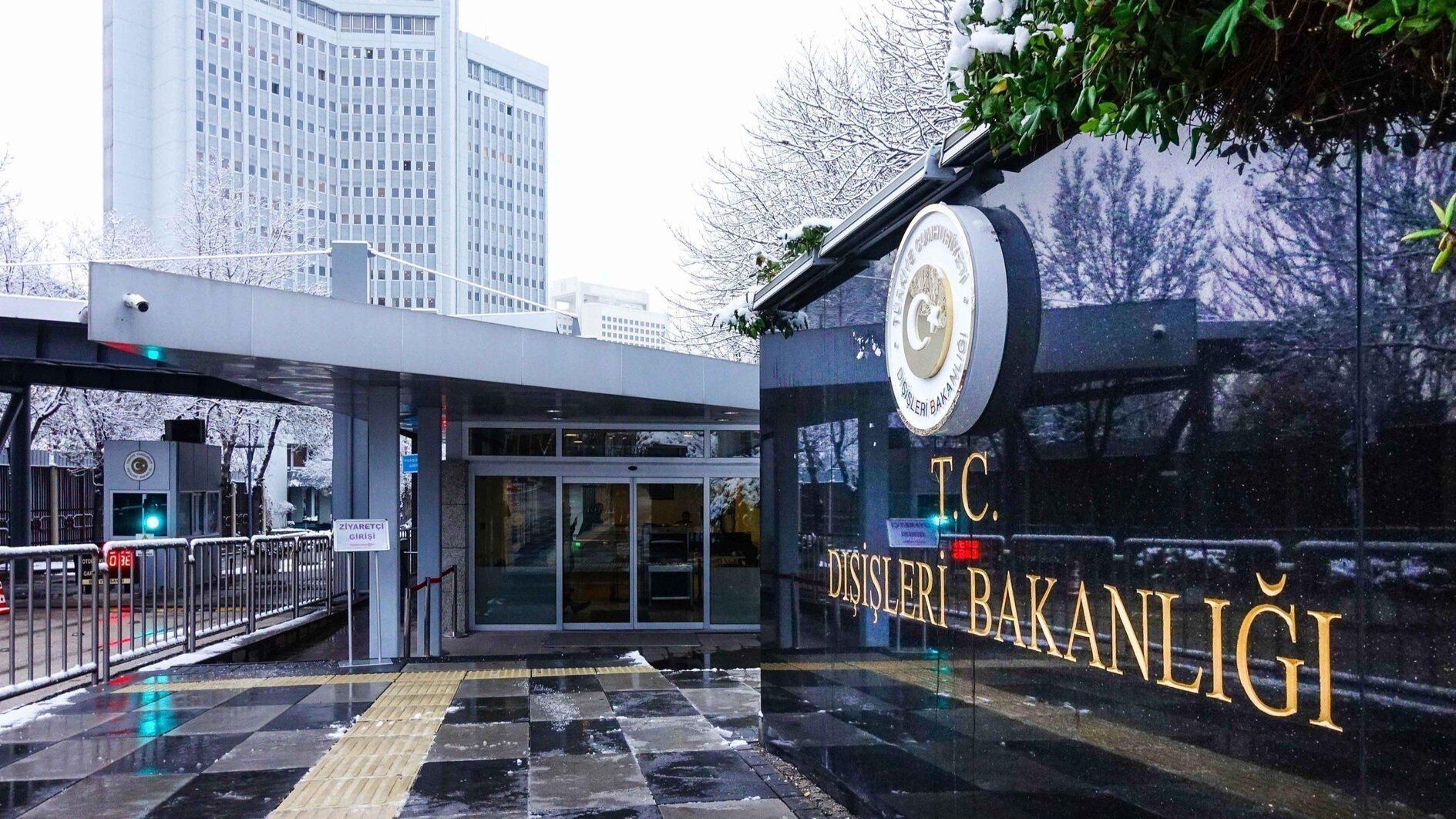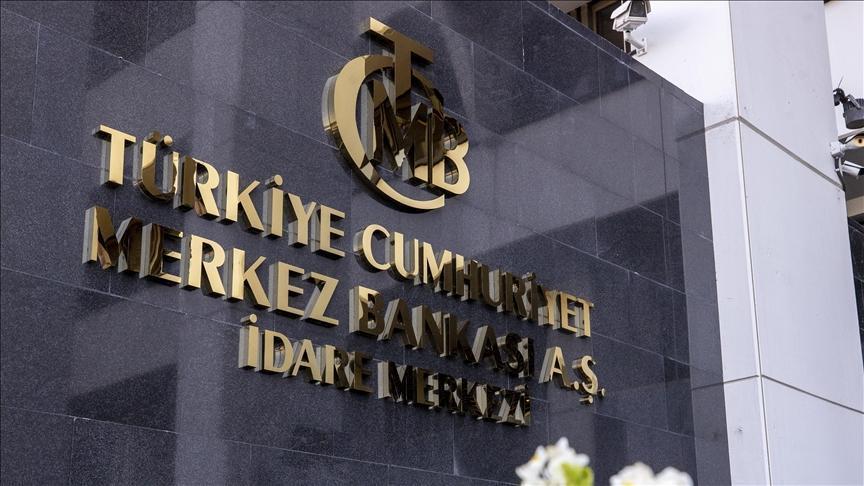Brazil fails to quell unrest despite reverse in fare hike
SAO PAULO - The Associated Press

Brazilians hold a poster shaped as a bus that reads in Portuguese; “Zero tariffs, transport 24 hours,” during a march demanding free public transit. AP photo
Leaders in Brazil’s two biggest cities said June 19 that they reversed an increase in bus and subway fares that ignited anti-government protests that have spread across the nation in the past week but the move wasn’t enough to quell the unrest. Protest organizers, who have widely employed social media, called for more mass demonstrations yesterday in Sao Paulo and Rio.“It’s not really about the price anymore,” said Camila Sena, an 18-year-old university student at a protest in Rio de Janeiro’s sister city of Niteroi. “People are so disgusted with the system, so fed up that now we’re demanding change.”
Sena added that seeing money poured into soccer stadiums for the current Confederations Cup and next year’s World Cup only added fuel to the people’s anger.
“It’s not that we’re against the World Cup, not at all. It will bring good things for Brazil. It’s just that we’re against the corruption that the World Cup has become an excuse for,” she said.
At a press conference in Sao Paulo to announce the reversal of the public transport fare hike, Sao Paulo Mayor Fernando Haddad said it “will represent a big sacrifice and we will have to reduce investments in other areas.” He didn’t give details on where other cuts would occur.
Rio de Janeiro Mayor Eduardo Paes also confirmed that the fare increase would be rescinded in that city.
Beginning as protests against bus fare hikes, the demonstrations have quickly ballooned to include broad middle-class outrage over the failure of the government to provide basic services and ensure public safety, even as Brazil’s economy modernizes and tax rates remain some of the highest in the world.
To help maintain order, President Dilma Rousseff dispatched federal troops to five cities hosting games during the Confederations Cup, an international soccer tournament that began earlier this month, Reuters reported. The competition is a warm-up for the 2014 World Cup, a much bigger tournament that Brazil will also host.
















